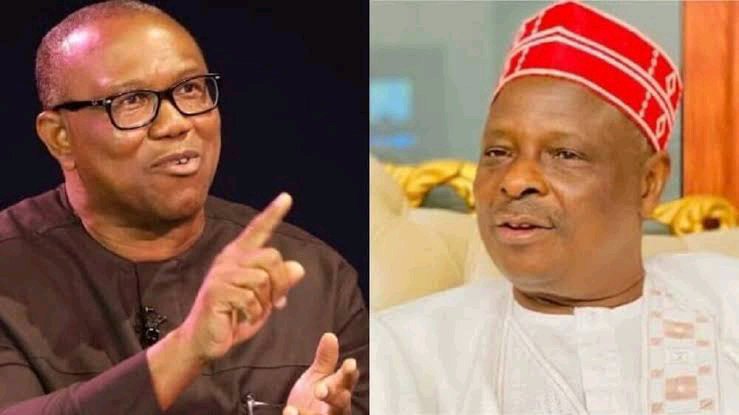The capacity of the Obidient movement to ensure Peter Obi’s triumph as president in the 2027 general elections has been cast into doubt by political analyst and legal specialist Ahmed Raji. Though it has a sizable fan base, Raji claimed in an interview with Trust TV that the movement isn’t well-organised or nationally recognised enough to compete for the presidency in Nigeria.
He is of the opinion that winning an election on a national level is not always dependent on how popular you are online or among voters in large cities. The Obidient movement is less of a political party and more of a pressure group, as Raji pointed out. He stressed that there’s no assurance of votes from Obi admirers unless the organisation becomes a legitimate political institution with a plan.
He said that the movement should not rely on political coalitions but instead register as a party, saying that this would show how popular Peter Obi really is. He said that while groups like Rabiu Kwankwaso’s Kwankwassiya can get people talking, they don’t always have the national reach to win elections, drawing parallels to the Obidient movement.
In 2023, Kwankwaso received a sizable number of votes in Kano, but Raji emphasised that a single state’s support is insufficient to guarantee a president. He claims that President Bola Ahmad Tinubu’s current trajectory may benefit from his inclusion. We are not disputing the possibility that it’s all feasible. But our point is that Kano needs more than a million votes to become president.
Consequently, Peter Obi will not be elected president of Nigeria by the Obi-Dinient movement. According to Raji, in order to have any chance of becoming president of Nigeria, one must win over people from all of the country’s varied regions. He made the valid argument that long-standing political structures with a presence at the grassroots level are inherently more powerful than a movement with limited geographic reach.
In a nation as vast and complicated as Nigeria, he claims, winning depends on widespread support and the distribution of ballots. When challenged about the strength of a coalition comprising different political figures, Raji maintained his scepticism. Such coalitions, he said, don’t always work together and don’t produce strong constituency-level voter bases.
He thinks these groups can’t challenge the present administration seriously until they show they have actual political clout in the real world. In his final remarks, he emphasised the significance of coordinated voter outreach in several states. Using the 2023 election’s vote distribution as an example, Raji stated that improvements in one area should compensate for declines in another.
It would be difficult for Obi to recover from votes lost in northern states like Kaduna, he said, regardless of how well he does in Anambra, his home state. The greatest obstacle that Peter Obi and the Obidient movement still face, in his opinion, is obtaining a wide electoral margin.
Love Reading Authentic News Stories, Click The Button Below

